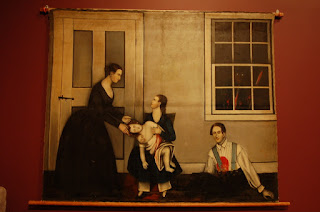THE WINKING TAPER OF CONSUMMATED HOPE
“They practice upon the convicts, without scruple or reserve, everything abominable, disgusting and inhuman.”- William Coffey, Inside Out; or An Interior view of the New York State Prison 1823
I’ve only spent one night in jail in my entire life. In the Spring of 1972 I was arrested in Sevierville, Tennessee, for riding a motorcycle without a helmet. On my way to the County jail the nice cop let me have a smoke and told me not to worry. I must’ve looked concerned, but I really wasn’t. I approached my first lock-up as an adventure, a right of passage for a yankee white boy in the deep south. I placed my one phone call, left a message with a sleepy, apathetic neighbor in Knoxville and settled in for a little county time. The sheriff’s name was “Bat” Gibson and he was running for reelection in the county. There was an old myna bird just outside my cell who had been taught to say—“Vote for Bat”— incessantly.
What should have amounted to a small fine and a stern talking to, ended up being a case of mistaken identity, as a fourteen year old runaway set fire to his mattress in the adjoining cell. When the shift changed there was some confusion as to who exactly started the fire. After they doused the mattress, the smokey firebug was moved to a different cell and I remained in place. When my friends called back to bail me out, they were told by the jailers to “Forget it.” the kid in the first cell tried to breakout. I was then known as “the kid in the first cell,” and I had been charged with arson and attempted jailbreak, now being held without bond. Around 4:00 am two burley cops came into my cell to teach me a lesson. I’d just seen Deliverance, and wasted no time ratting out my young friend, one cinder block wall over. I was never so scared in my life.
Sheriff Millard “Bat” Gibson was known as the “Buford Pusser” (Walking Tall) of Sevier County, Tenn. A book on East Tennessee characters noted that, “Controversy was never a stranger to Gibson. Angered when he saw a black man from Knoxville with a white girl in the seat beside him, he stopped the car in Pigeon Forge. The colored man made the mistake of sassing the sheriff. Gibson beat the man senseless, causing him to be permanently paralyzed.”
By the next day it had all been sorted out and I was released with a $50 fine, but not before I had a mini-nervous breakdown. I’ll never hold up under torture. If I had been black I probably wouldn’t be writing this of my own accord. I can’t say I’ve never broken the law again, but I will never again romanticize doing time, and will always try to avoid jail, Sevierville and myna birds…..even for one night.
As the years passed, and administrations changed, Newgate’s spiritual, correctional and fiscal concerns were many times cross purposed with the well-being of the inmates. But not always. Coffey writes of one trade in great demand at Newgate. Nobody wanted to make shoes, horse collars or dye cloth; but everybody wanted to be schooled in how to be a locksmith. Because William Coffey clerked in the prison he was privy to information on many outside contracts. Newgate had a three year contact for “day labor,” working with locksmiths in New York City. One convict promised to serve out his entire sentence, with no request for parole, if they’d just put him on the contract, and teach him how to dub a lock. Then, he gleefully explained, “there would not….be a wealthy store, in any seaport in America, but what had I entered.”
Unlike the convicts, the administration was not learning any useful lessons. With a lack of skill, empathy or benevolence among a string of agents (wardens) and a heavy turnover among the unskilled keepers (guards) liquor, weaponry, and payoffs flowed throughout the corrupted institution. Eddy’s “garden,” had become a swamp. When published, William Coffey’s book was ignored and had little impact, but the writing was already on the wall for Newgate. The institution was losing money and becoming too violent to govern. The “bad influences,” of a city bursting with immigrants and petty crime, could not be kept out, no matter how high the stone walls were. The future of prisons in New York and the rest of North America, would not be in the urban centers, or even the suburbs, but rather the hinterland. Dannemora is almost in Canada.
The stones from Newgate’s demolished walls still pave downtown West Village streets. Finding it “unfit for renovation and financially ruinous,” the New York commissioners recommended transferring the inmate population further up river to Sing-Sing and Dewitt Clinton’s pet project, the brand new Auburn State Prison. David Conklin would go to Sing-Sing and in 1825 Jack Hodges would be one of the first of Newgate prisoners to “work for Copper John,” at Auburn State Prison. Going “upstate,” would take on a whole new meaning.

Comments
Post a Comment